Sidharth Malhotra : With Every Film, I Try To Prove To Karan Johar That He Didn't Make The Wrong Choice
By EEPSITA GUHA
Hasee Toh Phasee (HTP) has done exceedingly well and your performance has been loved by the audience and critics alike. You must be thrilled...
I'm feeling so relieved because this was my second film after Student Of The Year and I was feeling the pressure of expectations. There was also the other aspect ki solo film hai, so the makers didn't have a barometer of what I can bring to a Friday in terms of the financial angle of it. And then finally, there was the most important aspect ki yeah, we've seen him in a film like Student Of The Year, now let's see if he can pull off a film like this. Having said that, I was personally very confident that I've done something very different with Hasee Toh Phasee. There was a lot of quirkiness to my character and there was a lot of newness to the film. So in that sense, we knew that we had done something which was not regular.
Everyone's talking about the amazing chemistry that you shared with Parineeti Chopra in the film. You two seem to have bonded pretty well.
Working with Parineeti has been very interesting and more importantly, very entertaining. She's very bubbly, very open to suggestions and likes to rehearse a lot. And we hit it off from the first day itself since we have a lot of similarities - we both are from outside Bombay, we are both Punjabis. You can't get more Punjabi than Malhotra and Chopra (laughs). We both love to eat, which is again a very Punjabi trait. So there was a lot we had in common. And that helped us break the ice on the first day itself. This film needed us to know each other really well because there is a lot of interaction predominantly between these two characters. If the interaction between us didn't work, then the film wouldn't have worked, you know.
Your Student Of The Year (SOTY) co-stars Alia Bhatt and Varun Dhawan chose to step out of Dharma for their second venture but you didn't. Was that a conscious decision?
It all started with Phantom coming to Dharma for a rom-com. Actually, if you see, it's a full Phantom film. Even the production was handled by Phantom. Dharma became the backing studio. So it was not like we are bound to Dharma. My next film with Mohit Suri is a Balaji film. So in that sense, none of us is bound to Dharma. Varun went to his father for his second film. I wish even my father directed a film for me (laughs). So we all were free to do whatever film we want to do. I think all of us are going by content, none of us is going by production houses as such. Because at the end of the day, that's what has become important keeping in mind the surroundings and the competition.
Ever since Varun and you started out with SOTY, you two have been pitted against each other. And now with your second films releasing within weeks of one another, there's bound to be a sense of competition. Has that strained your friendship?
No, not at all. I think there would be comparison or competition if we both are pitching for the same film or the same role. But our films are distinctly different from one another. Plus, we both have such different personalities. As far as our personal equations are concerned, no, it's not going to affect the both of us. We both have such a great bond, we know each other from our AD days, way before we became actors. So it doesn't affect us if our releases are coming close to each other, even though the media would really like to believe that. It's not like we are keeping a tab on each other and seeing ki maine tujhe beat kiya ya nahin. There's a competition to grab the audience's attention. Because every Friday, the audience has some hero to play some role in our age bracket. So I think our competition is to see which hero the audience likes more on a given Friday. That's it.
You had previously stated that compared to star kids Varun and Alia, you feel a tad uncomfortable in the industry because you're an outsider. Having spent two years here, do you still feel like an outsider?
I don't feel the difference as such in front of the camera. Because I feel that after the first film, everyone is equal. After that, it just depends on your work. Like if I am doing bad work, I can't force anybody to take me in his film. Even if your father is there, you can't force him to take you if your performance doesn't work. But off camera, I think the comfort has come in now. Earlier, I wasn't sure of how to deal with people - will I offend this person, is this person understanding what I'm trying to say. I didn't know the etiquettes of thefilmi world. How you're supposed to talk to the director, how do you say no to a film without offending a person, all that. In that sense, I feel there's a difference between star kids and somebody like me who is still trying to understand the workings of the industry. But in these two years, I think I've become better at dealing with people. I'm now dealing with more production houses, more people. So I'm getting better at it.
Finally, you're known to be extremely close to your mentor Karan Johar. Tell us more about your rapport with him.
Karan Johar is the sole reason I'm sitting here. Next to my parents, I think he's the one who has given me so much. In spite of me being an outsider, he had so much trust in me just after seeing my audition and had the instinct that this boy can do something if given the chance. He saw something in me, which even I questioned in the beginning. When he selected me for SOTY, I was like, Oh shit, I got SOTY'. It was too big to believe. Now I feel answerable to him. I have something to prove to the industry, to Karan Johar and to Dharma. With every film, I try to prove to him that he didn't make the wrong choice.


















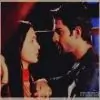





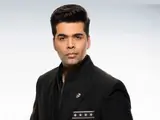


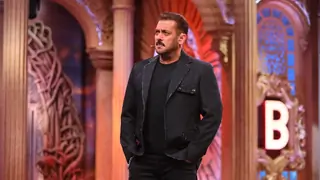


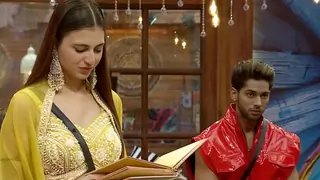



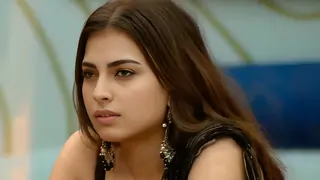





2